Please note below, re NZ hard-lockdown, and re 16 years young Singapore kid suffering heart attack
scmp.com
Coronavirus: New Zealand will enter lockdown after community case detected; Singapore may allow vaccinated travellers
- The entire country will be placed in a hard lockdown for at least three days, meaning all schools and non-essential businesses must close
- Meanwhile, Singapore may start with pilot arrangements for travellers ‘bubble wrapped to prevent transmission of the disease’, trade minister said
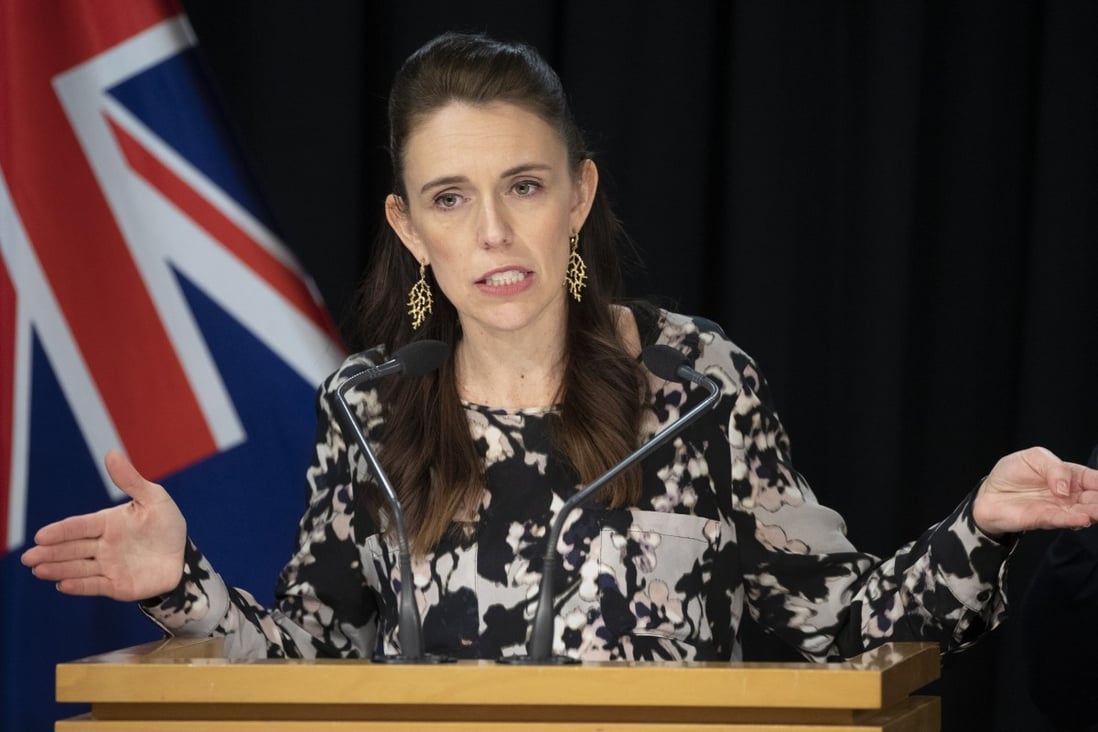
New Zealand Prime Minister Jacinda Ardern. Photo: New Zealand Herald
New Zealand will go into a hard lockdown within hours as it deals with its first community case of Covid-19 in almost six months.
Prime Minister Jacinda Ardern said a case had been detected in Auckland on Tuesday.
As a result, the entire country will be placed in a hard lockdown for at least three days – meaning all schools and non-essential businesses must close. People are only able to leave their homes to visit the supermarket, for solo exercise, or for medical care.
“We’ve seen the dire consequences of taking too long to act,” Ardern said, adding that genome sequencing of the case was under way, and there was no known link to the border as yet.
“Every case in managed isolation and quarantine recently has been the Delta variant and Delta is surging around the world. While we can’t confirm it yet, we need to assume our case will be too.”
Ardern said it was a situation nobody wanted.
“Going hard and early has worked for us before,” she said. “We know that Delta is a more dangerous enemy to combat, the same actions we applied last year can work again.”
The last case in the community was reported on February 28. Since then, all Covid-19 cases in New Zealand have been caught at the border.
“A hard and early response is the best tool to stamp out any potential spread and everyone in New Zealand is asked to stay calm, be kind and play their part while we gather more information on the potential case,” the Ministry of Health said in a statement.
New Zealand, with a population of about 5 million people, has recorded a total of 2,570 cases and 26 deaths during the pandemic.
A woman pushes her luggage through the arrival hall of the Changi Airport in Singapore. Photo: EPA
Singapore may allow vaccinated travellers
Singapore is considering pilot programmes to allow groups of vaccinated travellers to enter the country on carefully controlled itineraries as it moves towards reopening its border , according to the trade minister.
“We continue to look at countries including the US, UK, Australia and so on to explore possibilities of opening up,” Singapore’s trade and industry minister Gan Kim Yong said on Tuesday.
The country may start with pilot arrangements for travellers “bubble wrapped to prevent transmission of the disease”, particularly for vaccinated visitors, Gan said.
A more extensive reopening, however, would depend on countries around the world controlling the pandemic, he said.
“It will also require the whole world’s infection to come under control because Singapore is an open economy,” Gan said, when asked when the country can have bigger gathering sizes and longer opening hours for restaurants. “It’s important for us to bear in mind that infections will continue until the whole world is safe, and also we have to bear in mind that vaccines today, although it is very effective against severe diseases, it is somewhat less effective to prevent transmission.”
Singapore aims to relax more virus curbs, including starting to allow quarantine-free travel in September, when 80 per cent of its population is expected to be fully vaccinated. The high inoculation rate will allow authorities to ease measures, officials have said.
As Singapore’s rate of full vaccination rises further from the current 76 per cent, which is among the world’s best, the government has given some signs about what a cautious reopening could look like through year-end. At the same time, the city state has worked to control recent case clusters and keep serious hospitalisation at a manageable level.
As part of a strategy to treat Covid-19 as an endemic presence in coming years, Singapore earlier this month approved some easing of virus-related restrictions for vaccinated persons, including dining at restaurants in groups of five for those fully inoculated. The government is set to announce a loosening of work-from-home rules this week.
The easing of restrictions comes at a turbulent time for a region battling the Delta variant. A raft of disappointing Chinese economic data on Monday – on top of another port closure there last week following a positive virus test – added to signs that Asian trade powerhouses could be losing one of their economic lifelines.
Payout for cardiac arrest teen Singapore will pay S$225,000 (US$166,000) to a 16-year-old boy who is recovering from a cardiac arrest after having his first dose of Covid-19 vaccine , in order to help defray the costs of his medical care, the Ministry of Health said in a statement on Monday.
The patient, who had required intensive care, is recovering steadily and will likely be discharged in the coming weeks, according to the statement. However, he will likely require outpatient rehabilitation for some time before he can return to school and resume other activities.
The payout to the boy and his family comes under a government programme that provides one-time goodwill financial help to help offset costs associated with serious side effects assessed to be related to Covid-19 vaccines . The teenager received his first dose of Pfizer-BioNTech/Comirnaty vaccine on June 27, the government earlier said.
‘Zero-Covid’ New Zealand outlines plan for reopening borders
12 Aug 2021
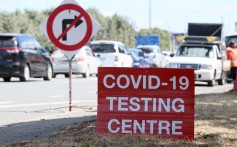
The acute severe myocarditis he suffered was likely caused by the vaccine, which may have been aggravated by strenuous lifting of weights and his high consumption of caffeine through energy drinks and supplements.
The government stressed that the benefits of the mRNA Covid-19 vaccines “continue to outweigh the risk of vaccination,” though reiterated that vaccinated people should avoid strenuous physical activity for a week after getting the shots.
While there is a small increased risk of myocarditis or pericarditis following the administration of the vaccines, the local incidence rate remains low at 0.48 per 100,000 doses administered, the government said. The majority have responded well to treatment and have recovered or been discharged well from the hospital, it said.
Japan will expand state of emergency Japan’s government on Tuesday said it will expand a coronavirus state of emergency to seven new regions as it battles a record wave of infections a week before the Paralympic Games.
Virus emergency measures that ban restaurants and bars from selling alcohol and require them to close by 8pm are already in place in Tokyo and five other regions, and had been due to end by August 31.
But the government will now expand the measure to additional areas, with the restrictions in all parts of the country running until September 12.
“[Infection] is spreading across Japan on a scale we have never experienced before,” said Yasutoshi Nishimura, the coronavirus response minister. “The number of patients in serious condition is rising each day.”
In addition to the measures affecting bars and restaurants, the government will ask large shopping malls and department stores to limit the number of customers inside at one time.
Japan’s Covid-19 cases hit new record before Paralympics
13 Aug 2021
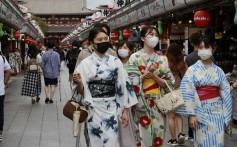
Japan has seen a smaller outbreak than many other countries, with around 15,400 deaths despite avoiding lockdowns.
But its inoculation programme began later and more slowly than in many other developed countries, and only around 37 per cent of the population is currently fully vaccinated.
In recent days, Japan has reported more than 20,000 daily cases nationwide, a record for the country.
The surge began before the Olympics opened last month and continued throughout the Games, which were held with spectators banned from most events.
On Monday night, organisers said a spectator ban would also be applied to the Paralympics, with limited exceptions for a programme bringing schoolchildren to watch the Games.
Paralympic participants face virus restrictions including regular testing and limits on their movement.
Delta variant’s global spread raises question: will Covid-19 become more infectious?
12 Aug 2021
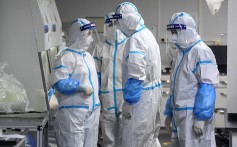
Philippine nurses overwhelmed Exhausted by the Covid-19 workload , Loui quit her job as an intensive care unit nurse at a private hospital in the Philippines earlier this year.
The 30-year-old, who declined to give her last name for fear of reprisals, is among thousands of medical workers who have resigned during the pandemic, complaining of low pay and poor working conditions. Others have sought better jobs abroad.
“We can’t even take a proper day off because we are often called back to cover for other staff who were in quarantine or resigned,” said Loui, who was earning 20,000 pesos (US$394) a month, including overtime, before she quit in March.
Hospitals fear the desertions have reached a critical point just as the Delta variant sends the number of cases soaring, as it has done elsewhere in Southeast Asia and worldwide.
The Private Hospitals Association of the Philippines (PHAPi) estimated that 40 per cent of private hospital nurses resigned last year, but more followed new waves of infections this year. Public hospitals are facing similar challenges.
Indonesia’s Covid-hit religious leaders give hope to their flocks
15 Aug 2021
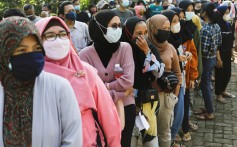
“If we want to increase bed capacity, that is easy, but the problem is the nursing component,” PHAPi’s president Jose Rene de Grano said.
More than a year and a half into the pandemic, reported coronavirus infections in the Philippines have soared to more than 1.75 million, the second highest in Southeast Asia, while deaths have exceeded 30,000.
Philippine Nurses Association President Melbert Reyes said he feared that hospitals could see even more nurses quit if their demands for better benefits and conditions went unmet.
“A lot of our nurses are demoralised,” Reyes said.
Union leaders in several hospitals in virus hotspots last week threatened to strike, while a nursing group warned that dozens could resign over unpaid allowance and benefits.
Sydney cases expected to surge
Covid-19 cases are set to “rise substantially” in Sydney in the coming weeks despite a prolonged lockdown, authorities said on Tuesday, warning soaring infections have already put hospitals under enormous strain.
Australia, once a world leader in curtailing Covid-19, is struggling to suppress a third wave of infections driven by the highly infectious Delta variant despite locking down more than half its population.
New South Wales (NSW) state, whose capital Sydney is the epicentre of the latest outbreak, reported 452 cases in the past 24 hours, the third-biggest one-day jump, and one new death.
“We envisage that case numbers in the next two or three weeks will bounce around and are likely to rise substantially,” NSW Premier Gladys Berejiklian told reporters.
Sydney has already toughened restrictions, including setting up roadblocks in parts of the city, and has hiked fines amid reports of people flouting strict stay-at-home orders.
Coronavirus: Sydney reports deadliest day and record cases
16 Aug 2021
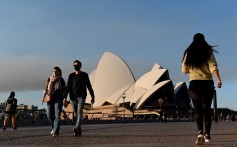
Economists fear the lockdowns may drive the country’s A$2 trillion ($1.5 trillion) economy into a second recession in as many years, although Australia’s central bank stands ready to take policy action, minutes from its August meeting showed on Tuesday.
In Sydney’s south, 80 medical staff were forced into isolation at a local hospital after several cases of Covid-19 were found in an oncology ward, NSW Health Minister Brad Hazzard said, noting reports of ambulances queuing to access care in the city’s west.
“There’s no question that the hospital system is under enormous pressure across New South Wales,” Hazzard said.
The country is racing to speed up its sluggish vaccination roll-out, with only about 26 per cent of Australians fully vaccinated.
Additional reporting by Reuters, Agence France-Presse, Bloomberg, dpa |




